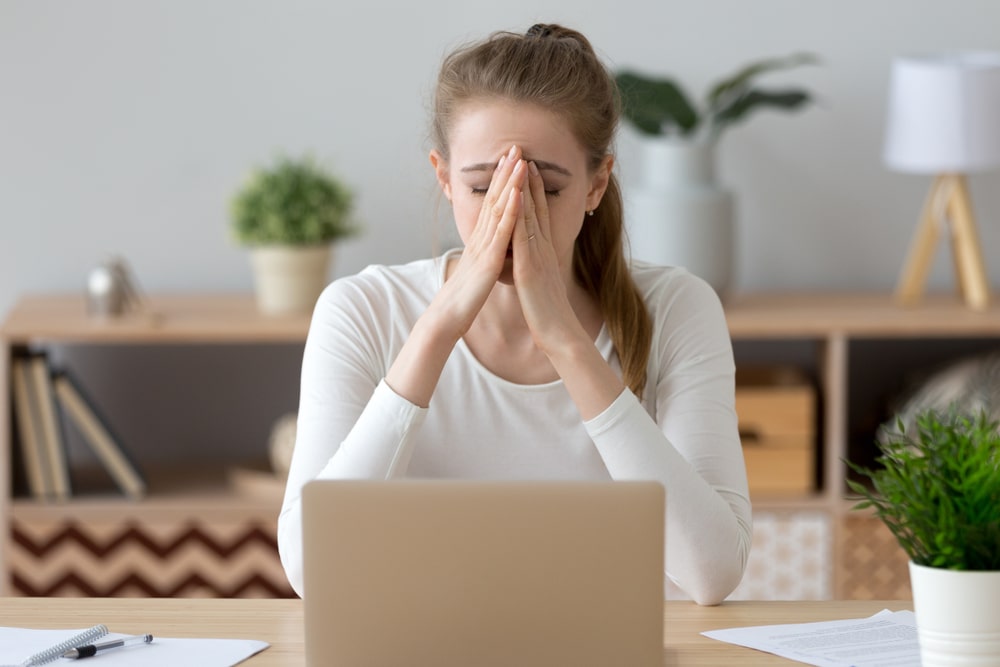Generalized anxiety disorder (GAD) is listed in the Diagnostic and Statistical Manual of Mental Disorders, Fifth Edition (DSM-5) as a mental illness and is characterized by “chronic anxiety, exaggerated worry, and tension, even when there is little or nothing to provoke it.” Young people with a generalized anxiety disorder will excessively worry over everyday life events. The anxiety is typically derived from usual life circumstances, which quickly develop into unmanageable worrisome thoughts. To effectively deal with GAD, it is helpful to know that it can manifest in different ways. Generalized anxiety disorder can present as psychological symptoms, behavioral symptoms, and physical symptoms. Every person is unique, and the symptoms of GAD that present in each teen will range in severity and duration. Therefore, it is advantageous to arm oneself with a variety of coping strategies to navigate anxiety when it arises. To better deal with anxiety, consider the following suggestions:
- Explore relaxation methods: try out different relaxation tactics (e.g., meditation, journaling, listening to music, etc.). Research has found that meditation can help lower blood pressure, reduce feelings of anxiety and depression, improve insomnia, and more.
- Exercise: regular exercise can not only help you remain physically fit, but also provides a natural release of endorphins, elevating your mood.
- Get creative: engaging in creativity can be an excellent emotional outlet; consider taking a painting class, try out ceramics, or take a cooking class.
- Breathe: practicing breathing techniques can effectively help with relaxation, stress management, control of psychophysiological states, and improved organ function. Focus on slowing down your breath to help pull your focus away from your anxiety and onto your breath.
- Acknowledge your feelings: although it may seem that your anxiety will last forever, it won’t; by acknowledging and naming your feelings you can help diffuse your angst.
- Focus on external stimuli: look around you and notice tangible items in your surroundings; this can be both grounding and helpful in gaining perspective over your anxiety.
- Laugh at the funny things: research shows that laughter can boost one’s immune system, ease pain, enhance relaxation, reduce depression, and alleviate stress.
- Get ahead of it: understanding your triggers surrounding anxiety and learning to act preemptively can help to reduce or even alleviate severe symptoms of anxiety.
If left untreated, a young person struggling with a generalized anxiety disorder is at increased risk for developing myriad adverse short and long-term consequences.
For Information and Support
Every family in need of mental health treatment must select a program that will best suit the needs of their family. When one member of a family struggles, it impacts everyone in the family unit. To maximize the benefits of treatment we work closely with the entire family to ensure that everyone is receiving the support they need through these difficult times. Seeking help is never easy, but you are not alone! If you or someone you know needs mental health treatment, we strongly encourage you to reach out for help as quickly as possible. It is not uncommon for many mental health difficulties to impact a person’s life, the long term. Pursuing support at the beginning of one’s journey can put the individual in the best position to learn how to manage themselves in a healthy way so they can go on to live happy and fulfilling lives.
OUR KNOWLEDGEABLE ADMISSIONS TEAM CAN BE REACHED 24/7 AT INFO@PACIFICRTC.COM OR CALL: 800-531-5769






